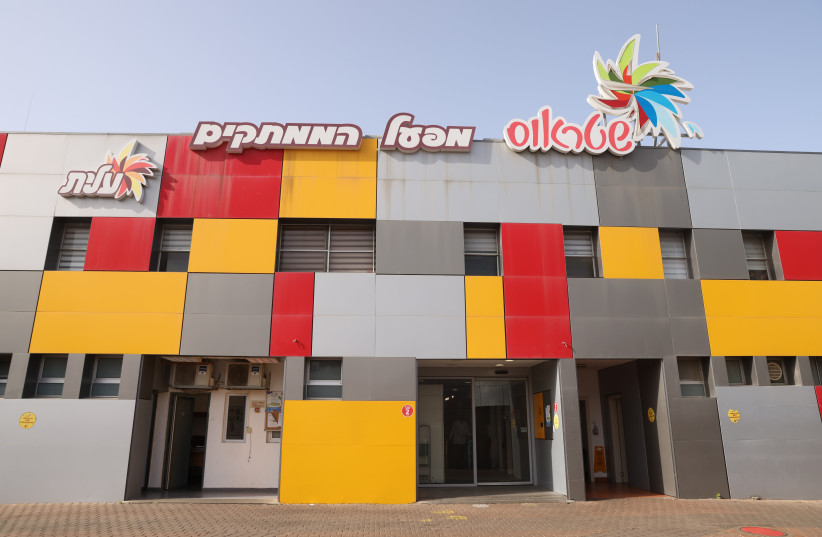Almost every single Israeli noshed on at least one piece of chocolate during Passover. It’s a given. Munching on chocolate on Passover is about as natural and universal, as eating matzah. And that phenomenon, that habit, is what motivated the heads of Strauss Elite to continue to produce and to distribute their chocolate products, knowing full well that the treats may be contaminated with salmonella.
Elite chocolate is ubiquitous in Israel. It is like mother’s milk. Not responding immediately to a potential country-wide hazard exposed the priorities of Strauss Elite leadership: money over everything.
These businesspeople were so myopic, so concerned about profits, that they failed to realize until after the fact that a delayed response will, in the end, hurt their company far worse than coming clean. They were penny wise and pound foolish to the hilt. The potential for lawsuits is gargantuan and the damage to their reputation so looming.
The salmonella recall on Israeli snacks made in the Strauss Elite Nof Hagalil plant, which used to be called Nazareth Illit (no pun intended) resulted in the Ministry of Health revoking their permit. And immediately shutting down the factory for three months or until the issues are resolved. And the US FDA issued a formal announcement of the recall, listing dozens of products that are now recalled: chocolate, candy bars, cakes and also Bazooka bubble gum.
Elite first opened in Ramat Gan in 1934. The Fromenchenkos came to Palestine from Riga, Latvia, in 1933 with chocolate machinery and chocolatiers – people who know how to make chocolate. In Riga, they had founded a chocolate company named Laima, which is name of the Latvian goddess of fate.

In 1996, Strauss merged with Elite. Today, the company controls well over 50% of the Israeli market share in chocolate and ice cream.
The decision and subsequent inaction was a massive betrayal of Israeli trust and loyalty. The Strauss Elite brand is not only synonymous with Israeli food, it is just as synonymous with Israeli sports and Israeli culture. It is such a part of Israeli culture that there is a famous Hebrew poem about Elite that was put to music by Yehonatan Geffen. It tells of a corner in Ramat Gan where the sweet smell of chocolate wafts from their factory.
And in 1977, when Maccabi Tel Aviv won the European basketball championship, Tal Brody, shouted “Anachnu al ha’mapa!” (We’re on the map), his basketball jersey and those of his teammates was emblazoned with the name Elite.
ELITE CHOCOLATE is more Israeli than the kova tembel.
Or it was. Even though the salmonella was first detected before Passover, management did not go public until after Passover so, they claimed, as not to hurt the mood of Passover. They never mentioned their bottom line.
In her apology to the public, Ofra Strauss, the chair of the Strauss Group said: “I apologize for letting you down. We pledge that we will fix the flaws and return our products to the shelves only when they are safe.”
Eyal Dror, CEO of Strauss Israel, explained the timeline: “About a month before the incident, there were pigeons in the chocolate factory. We got a couple of complaints from one of our clients and indications of product anomalies, but we didn’t listen or look into it, and that’s not right.”
The incident Dror refers to is the time when the salmonella was officially detected – not when the report was released. So, they knew of the danger, and continued producing and shipping chocolate. They knew... and they carried on...
There are civil and criminal issues at stake. On the civil business side, Strauss Elite leaders made a catastrophic decision. They chose not to take a health risk seriously. In their own words, there were “complaints.” There were “indications.” But they did not “listen or look into” them. Their words!
Their own statements should be the basis of civil and criminal charges. Whether due to incompetence or a lack of regard for their customer’s health and well-being, they must be prosecuted for their decision. They just wanted to sell more product and as a result, their customers, their fan base, became ill.
Think about it. How could pigeons ever be permitted in a sterile food factory. Food workers on the factory floors wear masks, gloves, white coats and those silly looking white shower caps. This isn’t Purim or Halloween. Workers wear disposable outfits because when in contact with food, companies are legally required to sanitize. Everything should be as close to sterile as possible.
What would happen if there were reports of pigeons in an operating room? Would responsible leadership wait a month to see if some inspector detects impurities? No way! Not even in Iran!
This is about more than chocolate. Poisons cannot be deliberately permitted into foods, sold and distributed - not for a day, a week or two weeks, not ever. That is what the heads of Strauss Elite did. They knowingly permitted poison in their products. They did not know how much poison.
Management took a risk. Israelis ate the chocolate. Thankfully, no one died.
The writer is a columnist and a social and political commentator.
